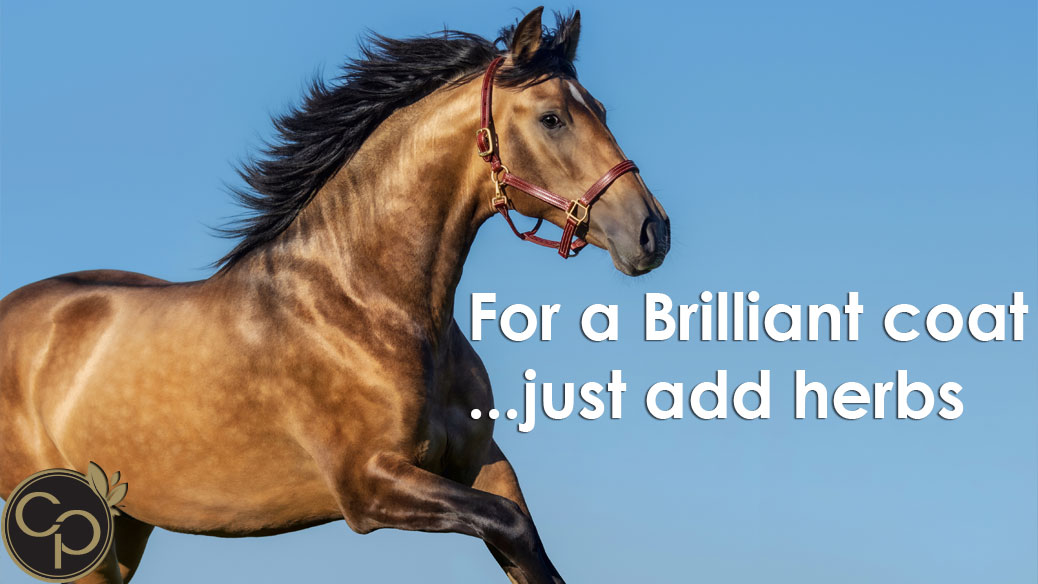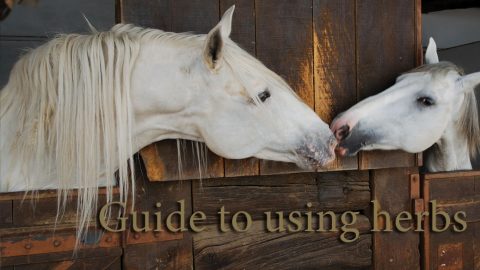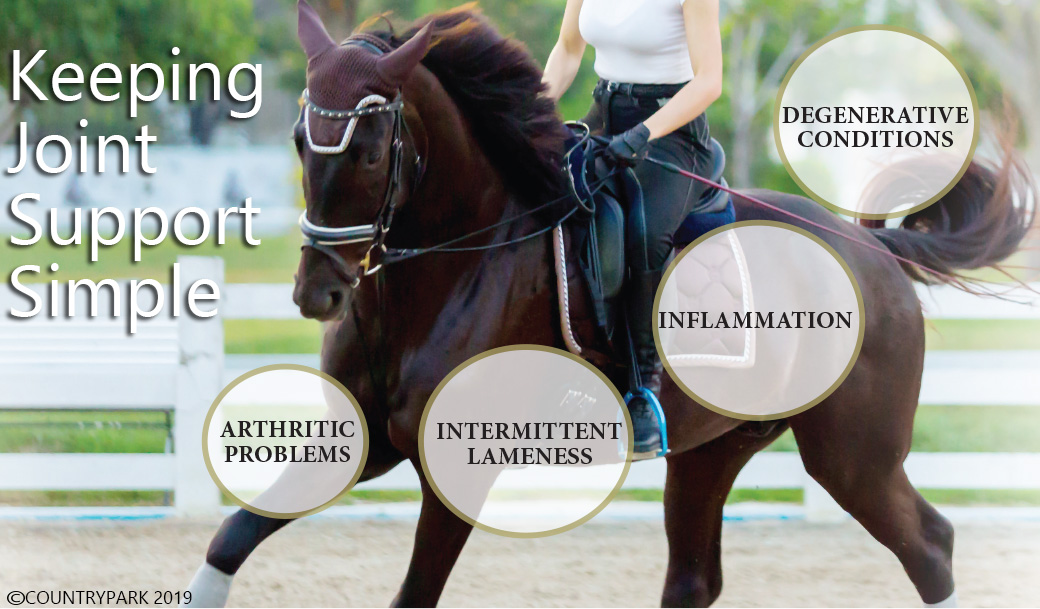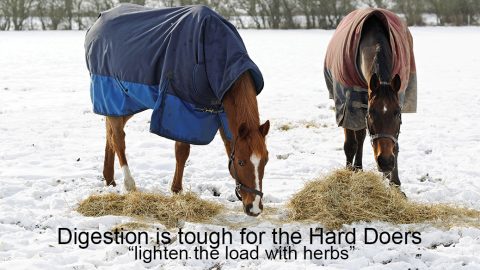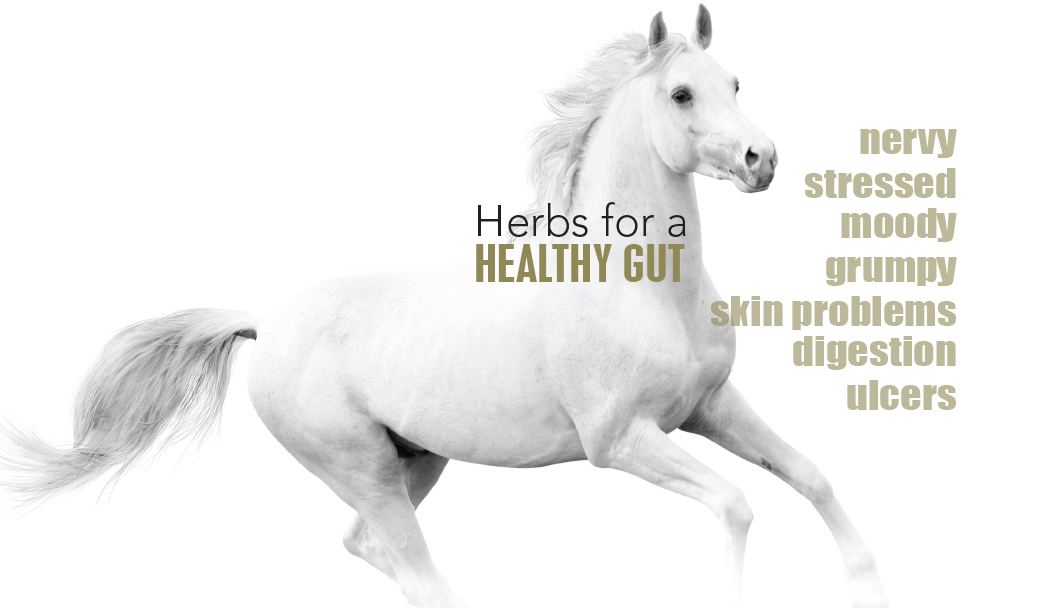When considering your horse’s overall wellbeing, a dull coat can be an early indicator that it is time for an internal tune up. The skin is the largest elimination organ so if it is dry and flaky, or even too greasy, another elimination organ may not be participating in removing waste products efficiently.
Dry skin can be moisturised with demulcent herbs such as marshmallow root or slippery elm bark which balance gut secretions and by reflex, moisten the skin. When marshmallow root balances the gut it can also have a clearing effect on gluggy ears. If the dry skin has become flaky or dandruff-like, using burdock root for its blood cleansing properties can be a useful addition.
Nettle leaf whose botanical name is urticaria (another name of hives) is a nutritional herb that can be the foundation herb with most itch issues including welts and hives. Where the horse has rubbed the skin raw, calendula petals will help keep the skin clean from infection and assist it to heal.
A dull coat or chipped hooves respond well to the lymphatic and nutritive herb clivers. The lymphatic system is like the garbage disposal unit of the body, so giving it some assistance with clivers and sometimes calendula petals will then help the coat shine.
Clivers with a high silica content can strengthen both hooves and thin-skinned areas. If your horse has rug rubs or areas of hair loss, clivers will be the first herb you choose.
Where there has been too much moisture from environmental factors, such as rain scald or greasy heel, the lymphatic actions of clivers and calendula will cleanse the skin and then combine with rosehips to continue with repairing the affected tissues.
Nettle leaf has already been mentioned but worth adding to the list of herbs high in vitamin C with rosehips and dandelion root. Another reason for a dull coat can be a sluggish liver and combining rosehips and dandelion root will help boost the function of the liver. When combined with turmeric powder, both stages of how the liver detoxifies are covered and the body is able to eliminate stagnation.
For the horse who is generally a bit ‘flat’ both in coat and effort, give the kidneys a bit of a pick-me-up with parsley leaf, another nutritional herb that will help give a gentle kidney flush. Do not give if your horse’s kidneys have been diagnosed with any dysfunction.
To cover both a sluggish liver and being flat, you could use the whole dandelion plant, giving both dandelion leaf and root together.
When you are looking at freshening up a dull coat with the intent of giving the elimination organs a tune up, you don’t have to do this long term – often for the time it takes to work through one kilo of each of your chosen herbs will be plenty. If your horse’s coat doesn’t start to glow by then, talk to your vet in case there is a more serious underlying issue.
Be mindful that as you bring the shine into the coat, you are tuning up the elimination organs that may not be operating as well as they could be. Don’t overload these systems by giving every herb mentioned in this article. Think carefully about which two or three herbs will fit best.
For the time poor horse person, as a general tonic, brew a tea from rosehip shellcut in a mug and add all contents to each feed. Rosehips is a tonic herb to most body systems.
When adding any cut herb like nettle leaf, clivers, parsley leaf or calendula petals – just add dry and mix in feed. For the root or bark herbs, powdered is easily assimilated in feed; if using the shaved root or bark, steep in a mug for 15 minutes and then add the shavings and the steeped liquid into the feed.
Don’t be surprised if nettle leaf brings out dapples; for darker horses, beetroot powder may add a new depth to the colour. Calendula petals and clivers add sheen to most coat colours. Other supplements such as flaxseed, chia seeds and seaweed meal will nourish the skin.
All the herbs mentioned are classed as gentle, so will safely support your horse while working towards optimal health. So, sit proudly and be prepared for your friend to ‘shine’ at your next outing.
Disclaimer: The information provided in this article is for educational purpose only and is not meant to replace veterinary advice or treatment. Copyright: Catherine Bird has been an equine natural therapist for 33 years working closely with Country Park Herbs for over 21 years offering advice to their clients.

